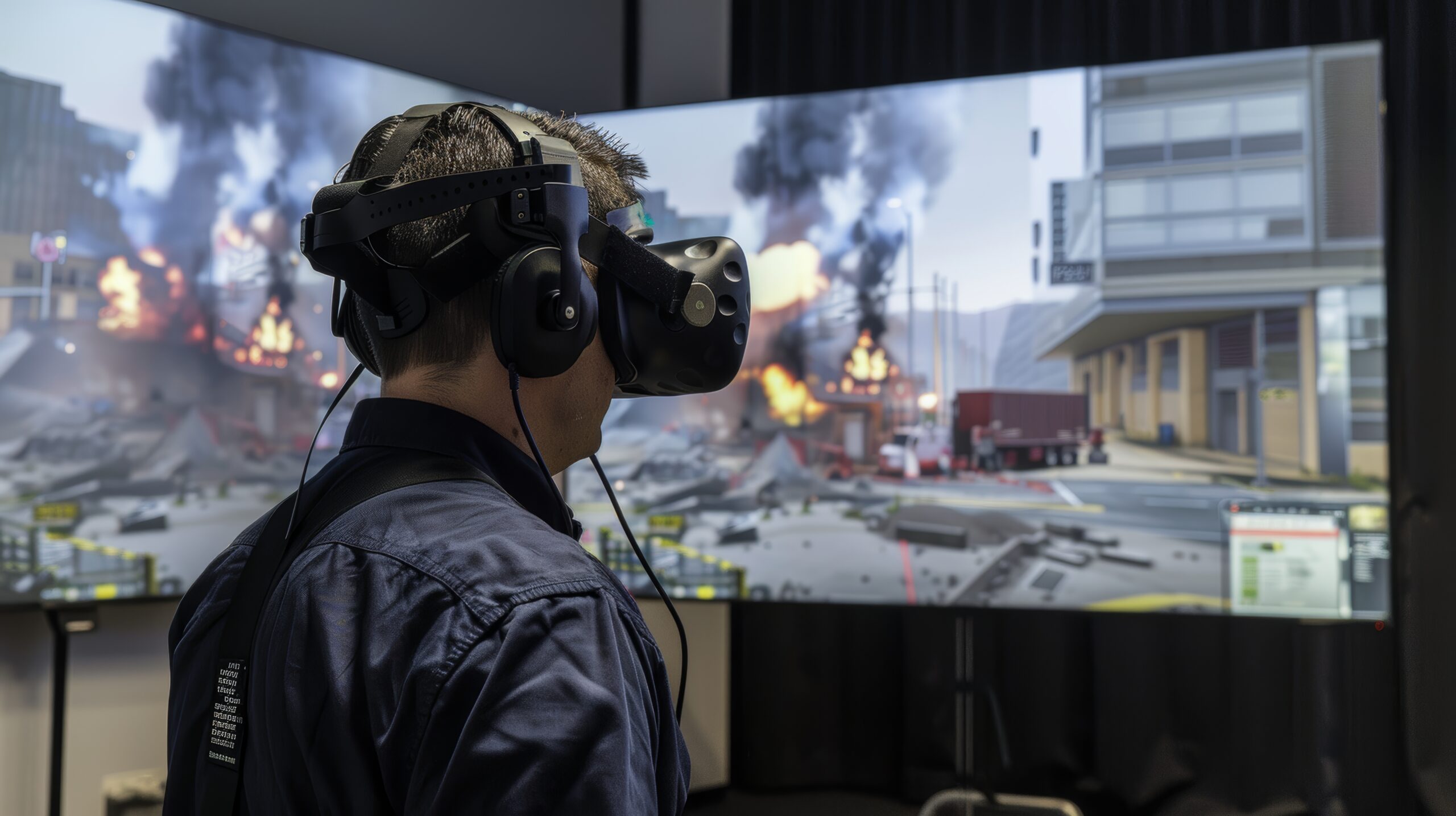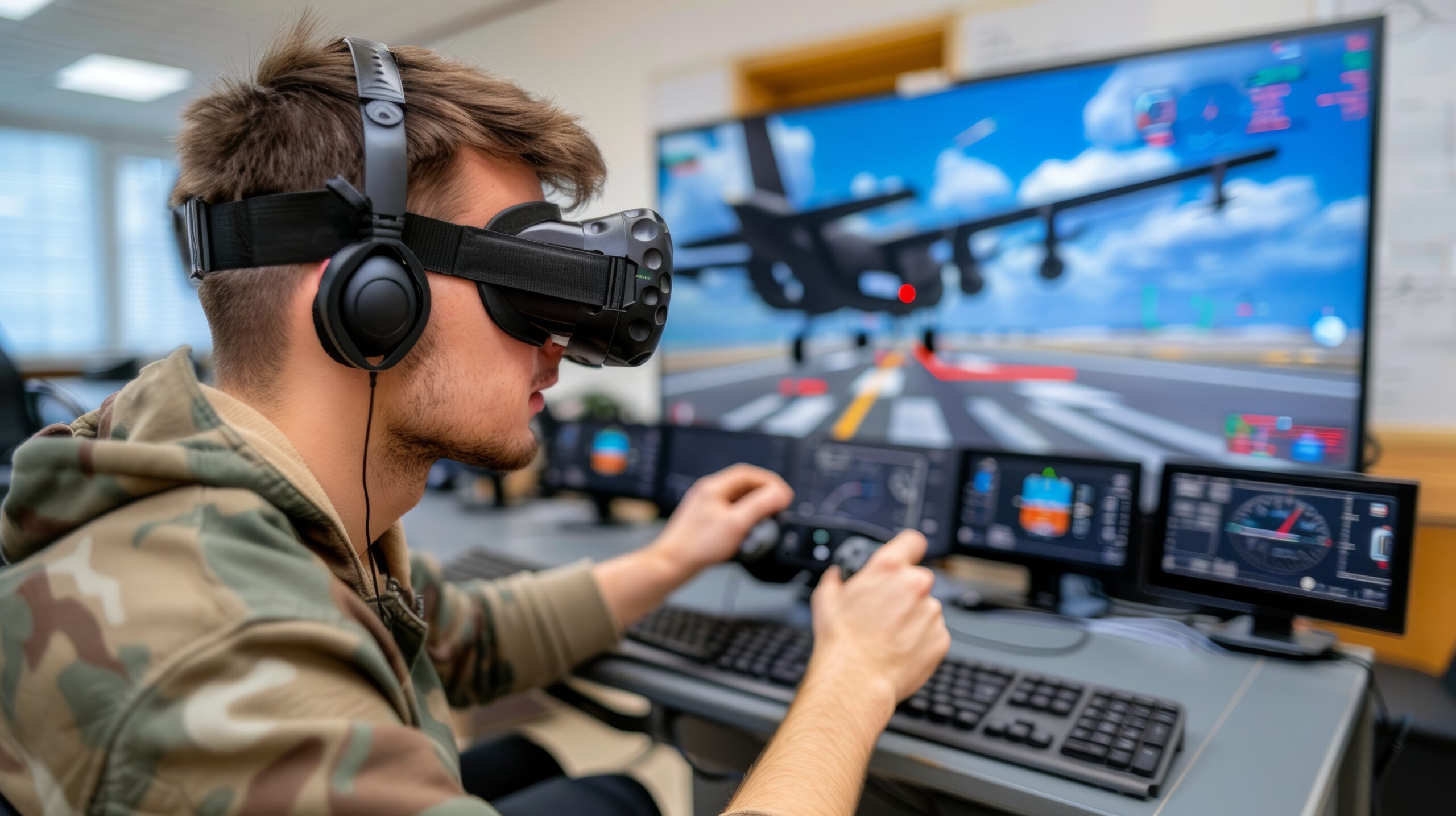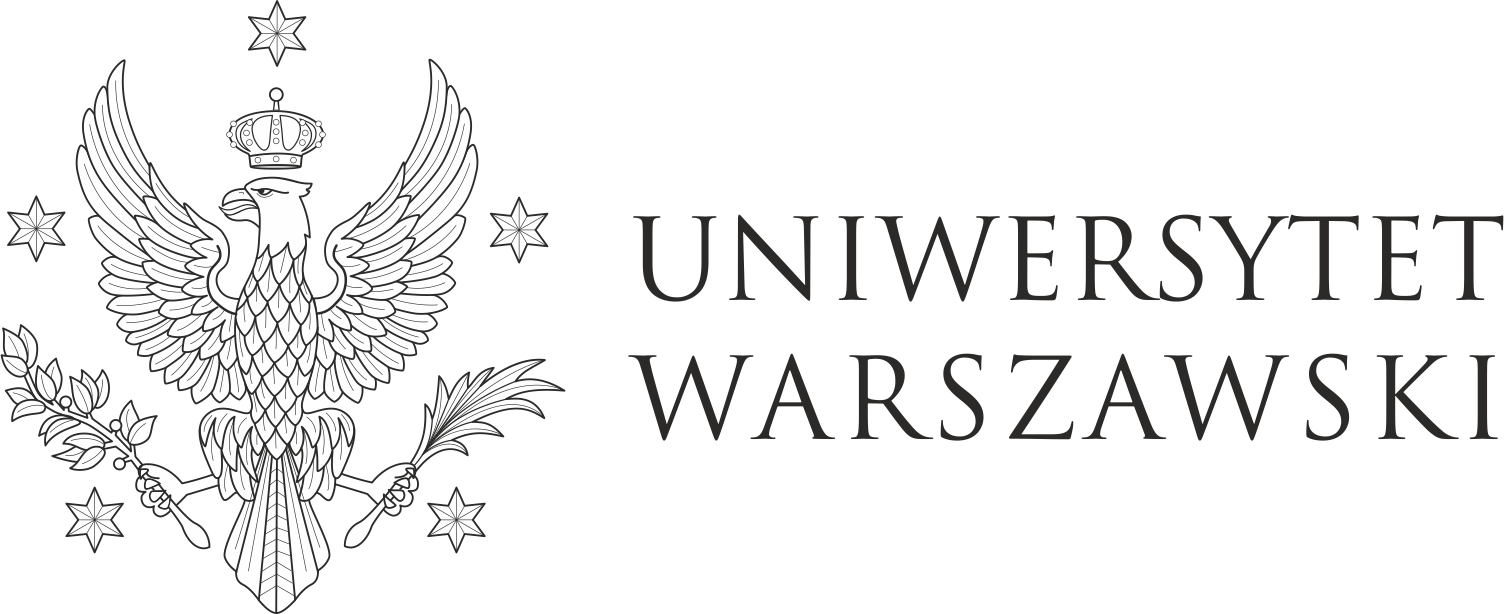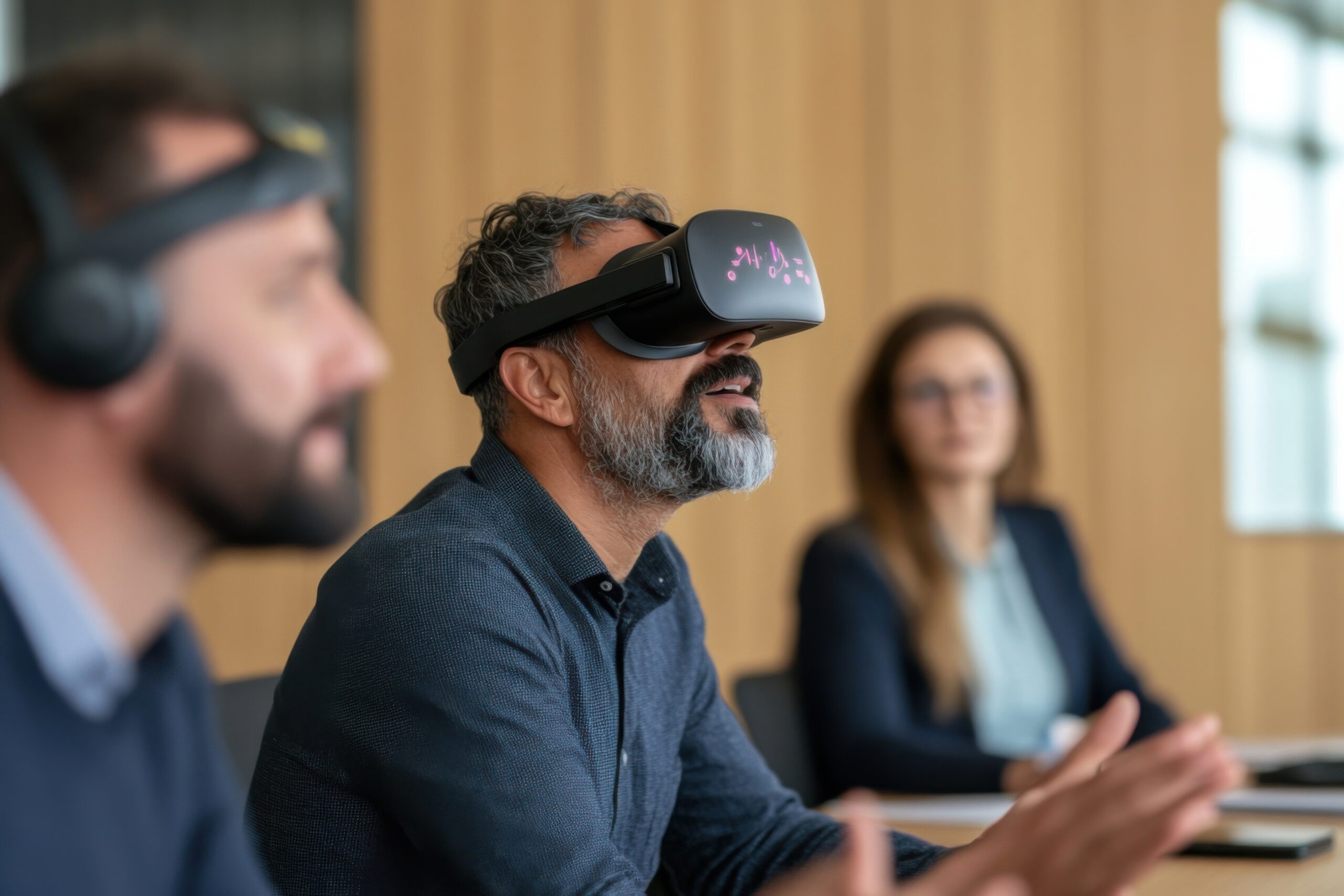Connecting experience, technology, and innovation
to develop competencies in key security and economic sectors
Polish Institute for Simulation Technology Advancement (PIRTS)
The Polish Institute for Simulation Technology Advancement is an interdisciplinary collaboration platform for experts from technology, science, and industry environments, engaged in improving the quality and effectiveness of education in professions crucial for public security and economic development.
We create a space for knowledge exchange and best practices in the field of modern training technologies. We support the design of industry norms and standards, actively participating in shaping a conscious regulatory environment. We provide consulting services in the design, implementation, and optimization of training simulation systems, in cooperation with public administrations, uniformed services, universities, and the private sector.
Innovative technologies
Modern simulation technologies increase the effectiveness of professional training. Through simulation, it is possible to practice situations that are impossible, too risky, or too costly to recreate in practice. This is an investment in competencies that respond to future challenges.
Future-Ready Skills
We promote the idea of modern professional training that responds to future challenges, strengthens the foundations of state security, and ensures competitive advantage for Polish companies. We combine technology with people, giving them the tools to be the best at what they do.
Empowering Through Training
Simulation is a globally recognized education method, used among others in aviation, military, medicine, transport, and industry. It enables safe skill development in realistic conditions, supporting the development of competencies crucial for safety and operational effectiveness. It allows for better knowledge absorption, error reduction, and building resilience in crises.
Empowering Bold Visions
Our mission is to build solid and lasting bridges between science and industry, between technology and people. PIRTS acts as a platform for dialogue, support, and development – for creators, users and researchers. It is a place where innovative ideas will find support, and pioneering projects will be able to develop in a spirit of cooperation and trust.
We hope that in the next decade, Poland will be a country where everyone whose work requires a high level of preparation – from pilots, through soldiers and rescue services, to drivers and industrial specialists – will have access to the most advanced training technologies.
Our Goals
Improving training quality
We promote the use of modern and effective training tools in key sectors of the economy and security. Our goal is to increase the efficiency and quality of training processes.
Shaping industry standards
We actively support the creation of norms and best practices that improve the quality of operations in strategic sectors. We build a conscious and modern regulatory environment.
Technological consulting
We support the design, implementation, and optimization of simulation systems. We provide expert technological knowledge for effective solutions.
Social education
We promote the idea of modern professional training that responds to future challenges. We show how to strengthen the security and competencies of Polish companies.
R&D support
We initiate research and development projects in the field of simulation technologies. We collaborate with industry, science and technological communities.
Expert community
We create a network of professionals and enthusiasts united by a common goal and modern technologies. We strengthen their competencies and provide space for development.
Industry events
We organize conferences, workshops, and meetings that support the exchange of experiences. We develop the specialized competencies of participants.
Promoting Polish innovations
We increase the recognition of Polish technological achievements worldwide. We show that Poland can set trends in innovation.
Our Projects
01.
The SIM-EDU project focuses on implementing simulation teaching methods in training for uniformed services and the medical sector.
02.
SYM-LAB is a research and development space for testing and optimizing simulation tools. We collaborate with universities and companies, supporting the creation of innovative training solutions.
03.
The project involves designing adaptive training scenarios for public administration, fire services, and rescue services, using digital simulations and behavioural analysis
Our team
The PIRTS team consists of specialists from the fields of technology, education, social sciences, security, and industry, united by a common goal.
- We combine the experience of practitioners with research knowledge, supporting the design of effective training solutions.
- Our experts advise public administration, uniformed services, universities, and companies on implementing simulations, creating training standards, and evaluating training effectiveness.
- We actively participate in international initiatives, building Poland's position as a leader of innovation in professional education.
- We work interdisciplinarity, with passion and responsibility, providing knowledge that translates into the real strengthening of competencies crucial for security and development.
- We established partnerships with industry specialists and scientists to ensure the most current and effective knowledge.


Join us – lead simulation forward with PIRTS
In our activities, we combine enthusiasm for new technologies, everyday patriotism, and expert knowledge from areas represented by our members. If you share our goals and want to actively work towards their realization – we invite you to join our Association.
For individuals who want to actively participate in the life of the Association.
Rights: – active and passive voting rights, – participation in meetings and events, – ability to submit proposals, – co-organizing Association activities.
Obligations: – active participation in achieving PIRTS goals, – regular payment of dues (100 PLN/month), – attendance at member meetings.
For individuals or institutions who want to support our activities financially, materially or substantively. Rights: – participation in meetings with advisory voice, – access to most regular member privileges (without voting rights).
Obligations: – fulfilling declared support, – compliance with the Statute and resolutions of Association authorities.


Next-Gen Professional Training
Simulation is the most obvious form of training technology for high-risk professions that has been used for decades – allowing realistic operational situations to be recreated without endangering life or health, in a controlled environment. Used in Poland mainly for pilot training and less frequently for driver training; it is overlooked as a method for developing competencies and training other professional groups from areas strategic for security and the economy. We believe this is detrimental to learning effectiveness.
- The lecture-based approach that dominates education, without realistic training, deprives many professional groups of effective ways to improve competencies. In Poland, technology in education and training still plays a supporting role, and its implementation is fragmented and often limited to seemingly modern activities.
- A significant limitation of traditional training is inadequate preparation for situations that occur rarely but have potentially catastrophic consequences. In the context of growing requirements for safety, operational resilience, and workforce flexibility, the key question is not so much whether to implement simulation technologies, but in which aspects of the training process they bring the greatest benefits. Practice confirms that training using simulation increases the level of operational safety, shortens the onboarding time for new employees, and improves the quality of decisions made under stressful conditions.



Simulations in professional training not only increase learning effectiveness but also bring real savings and support environmental responsibility. It is a tool of modern competency management. The broad market offer provides various types of simulators and training systems that differ in degree of technological advancement, level of immersion, range of functions, costs and hardware requirements. Simulation technologies have been developed for several decades and have reached maturity, enabling their stable and effective implementation in various sectors. At the same time, they remain a dynamic area of innovation – constantly enriched with new functions, standards and interaction possibilities.
Simulation technologies
Simulation technologies bring the greatest benefits in areas where the risk of human error is high and its consequences can be critical. Through simulation, it is also possible to practice situations that are impossible, too risky or too costly to recreate in practice. Simulation enables the practical exercise of such scenarios with the simultaneous engagement of multiple positions – it not only transfers knowledge but builds procedural and muscle memory.
Why should simulation technologies be included in a modern education system for high-risk professions?
Increasing training effectiveness and operational safety
Simulation enables realistic recreation of professional situations, which significantly improves knowledge retention and practical skill acquisition. People trained using simulation make fewer procedural errors and cope better in stressful situations. Such training increases concentration, emotional engagement, and speed of knowledge acquisition – participants complete training up to four times faster than in traditional form.
Crisis training and adaptation to difficult conditions
Simulation allows practicing rare scenarios that are difficult to recreate in reality – e.g., failures, time pressure, fatigue or extreme conditions. Thanks to this, participants develop psychological resilience and learn effective action under pressure, which increases their readiness for real professional challenges.
Personalization and training flexibility
Simulation systems offer the possibility to adapt the program to the needs of a specific trainee. Training can be conducted individually or in teams, remotely or on-site, which increases accessibility and allows effective management of human resources.
Cost-effectiveness
Implementing a simulation system allows reducing costs of: equipment operation and damage, logistics, instructional training, staff rotation or employee absenteeism. Simulations also enable faster onboarding of new people and flexible training management.
Environmental benefits
Simulation reduces fuel, energy, water consumption and limits noise and waste production. It supports the achievement of sustainable development goals and CO₂ emission reduction, in line with the European Green Deal and climate neutrality plans.
kontakt@pirts.org
Call us
784 025 885
664 380 006
796 036 667
Address
ul. Przasnyska 4/U2
01-756 Warszawa
Polish Institute for Simulation Technology Advancement
KRS: 0001154837 – District Court for the Capital City of Warsaw, 14th Commercial Division of the National Court Register
NIP (Tax ID): 5253034902
REGON (Statistical ID): 540890984
